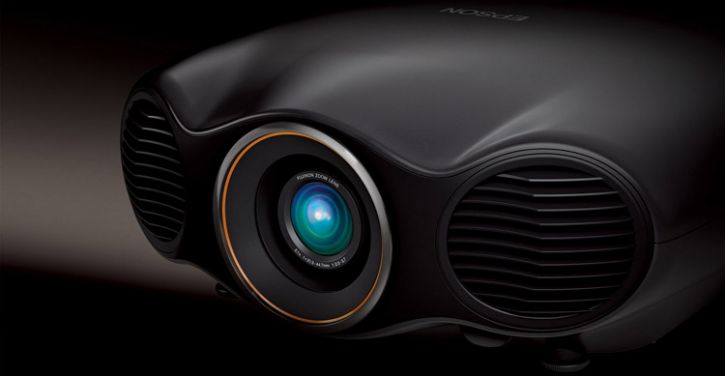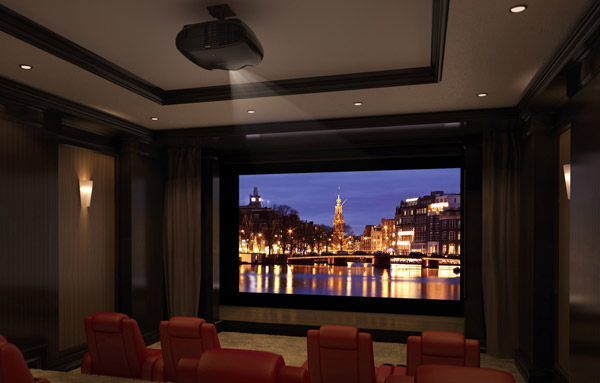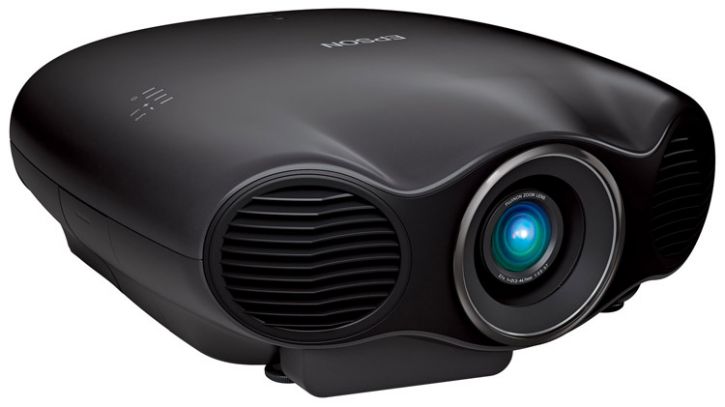Four years ago, at CEDIA Expo 2010, Epson unveiled a cool new high-end projector that featured their version of LCoS (Liquid Crystal on Silicon), the ProCinema 61000. It offered amazing black level performance, contrast and color saturation. It didn't quite make it into production, but was showcased again at CEDIA Expo 2011. And this time, Epson promised it would make it to dealers in the fall of 2011. It didn't. Instead, it dropped off the face of the earth.
In the meantime, Epson has refined their standard 3LCD home theater projector line, coming out with better projectors each year, normally selling for less money than the comparable model the year before. Epson makes great projectors, offering exceptional value, but the technology of LCoS (or in Epson's case, "LCoQ" - Liquid Crystal on Quartz) affords even better picture quality than traditional LCD and DLP projectors. Many of the top-rated home theater projectors on the market today, including those made by JVC and Sony, are based on LCoS technology.
So this year, at CEDIA Expo 2014 in Denver, Epson is showing off their version of the technology again, in not one, but two different projectors: the Pro Cinema LS10000 and the Pro Cinema LS9600e. But this time they're lit up, not by traditional projection lamps, but by lasers. Apparently the dual laser light source offers a wider color gamut than traditional light bulbs, and it allows the projector to produce excellent black levels and contrast due to a laser's immediate on/off response times. A side benefit is that lasers require no warm up time, so the picture you get from a laser-lit projector is as good as it gets as soon as you turn it on, not after a few minutes.

Epson opted not to call their projector technology "LCoQ" (which I pronounce "El Coque" like some dashing spanish super-hero), selecting the somewhat less exciting name of "3LCD Reflective" (3LCD-R) instead. This name honors Epson's rich LCD heritage, while acknowledging that the imaging engine is actually quite different from traditional backlit LCD projection. Once again, Epson is promising that production is right around the corner (and somehow, we're buying it).
The two models are very similar but differ in a few important ways. Both use Epson's 3LCD-R light engine with a native 1920x1080 (1080p) resolution and both use lasers as the light source. They also use thermal-conductive copper piping, combined with an ultra-low-noise fan to run the projectors at a whisper-quiet 19 dB. Both also include a personal favorite feature of mine: a custom zoom memory which allows you to zoom the lens to fill a fixed height 2.35:1 CinemaScope screen without black bars (and without the need for an expensive anamorphic lens). Epson reps tell me that they've worked to improve the speed of this power zoom lens so it can lock onto the desired aspect ratio quickly and accurately.

The top of the line Pro Cinema LS10000 uses a pixel shifting technology to create a virtual 4K image (3840 x 2160 resolution) and even accepts a 4K native input. The LS9600e offers traditional 1080p resolution but comes with a wireless HDMI transmitter with five HDMI inputs (vs. the LS10000's two) that can simplify installation: all you need to run to the projector itself is a power cord. The rated light output of the LS10000 is 1,500 Lumens (Color and White) while the LS9600e is rated at 1,300 Lumens.

Exact pricing on the two models has not yet been provided but Epson says that each will be available for "under $8,000" and they expect to start shipping these projectors in (wait for it...) "the fall time frame." This time they didn't mention the year, but we can only hope they mean 2014. We'll be checking out these projectors in Denver at Epson's booth at CEDIA Expo 2014.
More Information: